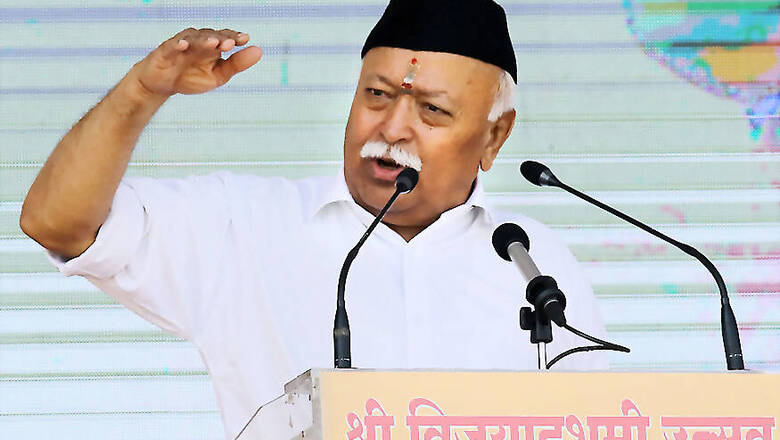
views
New Delhi: The Bharatiya Janata Party must rebuild its organisation in Delhi as Narendra Modi and Amit Shah cannot always ensure wins in state polls, the mouthpiece of the Rashtriya Swayamsevak Sangh has advised, close on the heels of a sweeping victory for the Aam Aadmi Party in the assembly elections this month in the capital.
In its editorial, ‘Delhi’s divergent mandate’, the Organiser has found faults in the BJP’s strategy for the polls. Voting took place in Delhi on February 8 while the results were declared three days later with the incumbent AAP led by chief minister Arvind Kejriwal netting 62 of the 70 seats on offer. Despite a fierce and polarising campaign, the BJP won just eight seats while the Congress was left empty-handed.
Advice for BJP
The article by the publication’s editor, Prafulla Ketkar, has advised the BJP leadership that “Narendra Modi and Amit Shah cannot always help out in the assembly level elections and there is no option but to rebuild the organisation in Delhi to address the local aspirations of the masses is the clear message”.
Ketkar writes that in the battle of perceptions, there was certainly no anti-incumbency visible against Arvind Kejriwal and his government which was aided by its measures to slash electricity and water bills in the city. “Though BJP tried to respond back by legalising about 1,700 unauthorised colonies benefitting about 40 lakh people, the apparent failure of BJP to revitalise the organisational structure at the grassroots level after 2015 and building up of the campaign in the last leg of the elections were the two major reasons for defeat in the well fought out battle,” the editorial says.
He poses the question, “compared to other states why does a huge percentage of Delhi voters prefer to vote differently in different levels of elections?”
The answer, according to the Sangh mouthpiece, lies in the changing character of Delhi, its population and aspirations. “Traditionally, in Delhi, BJP always had a solid vote base since its Jan Sangh avatar, and it continues to have it. The increased numbers of migratory population, residing in slums, became the major vote-bank for Congress with concessional policies,” says the editorial.
The article emphasises that since the emergence of AAP, besides the traditional middle-class vote of the Congress, “this entire slum-dwellers vote was transferred to the new party that emerged out of the anti-corruption movement”.
Kejriwal and Shaheen Bagh
The Organiser has also commented on how the Shaheen Bagh narrative was used by AAP to its advantage, and has branded the protests there against the Citizenship Amendment Act as “Muslim fundamentalism” that can be “a new testing ground for Kejriwal”.
It has also questioned the chief minister’s motives and his turn towards what many have called soft Hindutva. “How does Kejriwal respond to this danger? How far his chanting of Hanuman Chalisa was genuine? And whether he would address the issue of corruption that have brought AAP to this level? These and many other questions Delhiites would ask,” says the editorial.
Key Takeaway
Ketkar points out that at least since 1998, voters in Delhi have given their verdict in divergent ways at different levels. For instance, the BJP ruled almost all the municipal corporations in the capital but failed to trounce the Congress till 2013.
Even in 2017, the BJP retained the local bodies, despite AAP being the dominant ruling party. The Aam Aadmi Party, on the other hand, failed to make any mark in the civic polls and stood third in all the constituencies in the 2019 Lok Sabha elections.
“No single party is able to satisfy the Delhi voter at all levels and therefore, the divergent voting is on the rise is the biggest takeaway of this election,” the editorial says.















Comments
0 comment